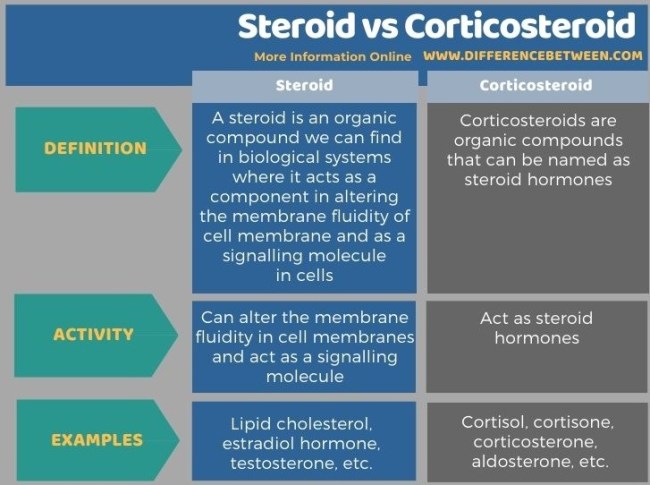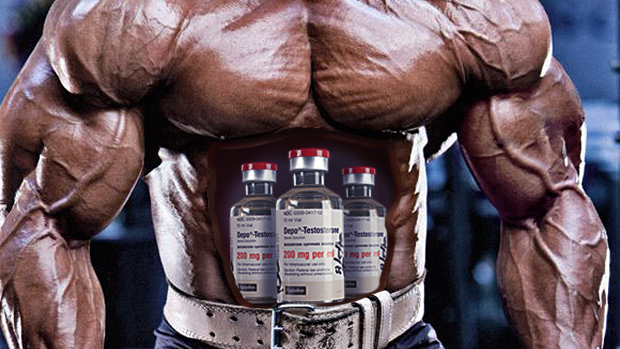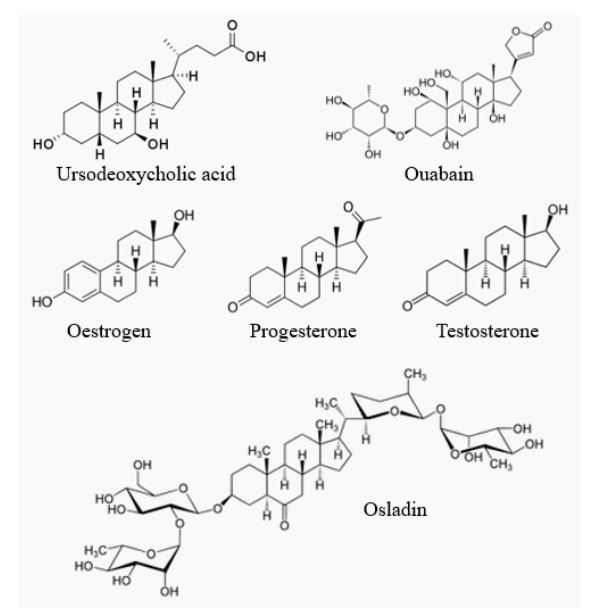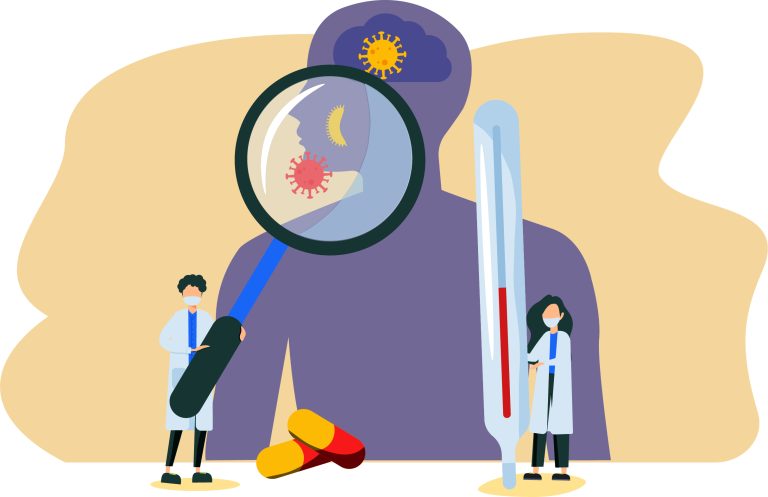Steroids Vs Corticosteroids
Steroids and corticosteroids are two commonly heard terms in the medical world. While the former is often associated with muscle…
Steroids and corticosteroids are two commonly heard terms in the medical world. While the former is often associated with muscle building and athletic performance, the latter is used to treat a wide range of medical conditions, including inflammation, allergies, and autoimmune disorders. However, with such similar names, it’s easy to get confused between the two. In this article, we’ll explore the key differences between steroids and corticosteroids and how they work in the body.
Steroids are synthetic hormones that mimic the effects of testosterone, the primary male sex hormone. They are often used illegally by athletes and bodybuilders to enhance muscle mass and increase performance. Corticosteroids, on the other hand, are a type of steroid hormone that is naturally produced by the adrenal gland. They work by reducing inflammation in the body and are used to treat a wide range of medical conditions. Despite sharing a similar name, these two types of steroids have vastly different effects on the body.

Steroids vs Corticosteroids: Understanding the Difference
What are Steroids?
Steroids are organic compounds that contain four rings of carbon atoms. They are naturally produced by the body, but can also be synthetically produced. Steroids have a variety of functions in the body, such as regulating metabolism, immune response, and inflammation.
There are two main types of steroids: anabolic steroids and corticosteroids. Anabolic steroids are synthetic derivatives of the hormone testosterone and are used to promote muscle growth and improve athletic performance. Corticosteroids, on the other hand, are used to reduce inflammation and suppress the immune system.
What are Corticosteroids?
Corticosteroids are a type of steroid hormone that is produced by the adrenal gland. They are also synthetically produced and are used to treat a variety of conditions, such as asthma, rheumatoid arthritis, and skin conditions. Corticosteroids work by reducing inflammation and suppressing the immune system.
There are several types of corticosteroids, including prednisone, hydrocortisone, and dexamethasone. These drugs can be taken orally, injected into the bloodstream, or applied topically to the skin.
Benefits of Steroids
Anabolic steroids are often used by athletes and bodybuilders to increase muscle mass and improve athletic performance. They can also be used to treat conditions such as delayed puberty and muscle wasting caused by diseases like HIV or cancer.
Corticosteroids are used to treat a wide range of conditions, including allergies, asthma, and autoimmune disorders. They are also used to reduce inflammation and pain associated with conditions such as arthritis and back pain.
Benefits of Corticosteroids
Corticosteroids are effective in reducing inflammation and suppressing the immune system, which makes them useful in treating a wide range of conditions. They can help to reduce pain, swelling, and redness associated with inflammatory conditions such as arthritis and asthma.
Corticosteroids can also be used to treat skin conditions such as eczema and psoriasis, as well as allergic reactions. They are often used as a short-term treatment to relieve symptoms, but can also be used long-term to manage chronic conditions.
Side Effects of Steroids
Anabolic steroids can have a number of side effects, particularly when taken in large doses or for prolonged periods of time. These can include acne, hair loss, mood swings, and an increased risk of heart disease and liver damage.
Corticosteroids can also have side effects, particularly when taken in high doses or for prolonged periods of time. These can include weight gain, fluid retention, high blood pressure, and increased risk of infections.
Side Effects of Corticosteroids
Corticosteroids can have a number of side effects, particularly when taken in high doses or for prolonged periods of time. These can include weight gain, fluid retention, high blood pressure, and increased risk of infections.
Long-term use of corticosteroids can also lead to more serious side effects, such as osteoporosis, diabetes, and adrenal suppression. It is important to use these drugs only as directed by a healthcare professional and to monitor for any potential side effects.
Conclusion
Steroids and corticosteroids are two types of organic compounds that have different functions in the body. Anabolic steroids are used to promote muscle growth and improve athletic performance, while corticosteroids are used to reduce inflammation and suppress the immune system.
While both types of drugs can be effective in treating certain conditions, they can also have side effects, particularly when taken in large doses or for prolonged periods of time. It is important to use these drugs only as directed by a healthcare professional and to monitor for any potential side effects.
Frequently Asked Questions
Many people are confused about the difference between steroids and corticosteroids. Here are some common questions and answers to help clear up any confusion.
What are steroids?
Steroids are a type of hormone that can be naturally produced in the body or taken as a supplement. They are often used by athletes to enhance muscle growth and improve performance. However, they can have serious side effects, including liver damage, cardiovascular problems, and infertility.
It’s important to note that not all steroids are illegal. In fact, some steroids, such as those used to treat asthma, are legal and can be prescribed by a doctor.
What are corticosteroids?
Corticosteroids are a type of steroid hormone that is naturally produced in the body by the adrenal glands. They are often used to treat inflammation, allergies, and autoimmune disorders. Unlike anabolic steroids, corticosteroids are not used to enhance athletic performance.
Common corticosteroids include prednisone, hydrocortisone, and dexamethasone. They can be taken orally, injected, or applied topically.
What is the difference between steroids and corticosteroids?
The main difference between steroids and corticosteroids is their purpose. Steroids are often taken to enhance athletic performance, while corticosteroids are used to treat medical conditions such as inflammation and allergies.
Additionally, the side effects of steroids and corticosteroids can be very different. Steroids can cause serious health problems such as liver damage and cardiovascular disease, while corticosteroids can cause side effects such as weight gain, mood changes, and increased risk of infection.
Can corticosteroids be abused?
While corticosteroids are not typically used to enhance athletic performance, they can be abused. Some people may take higher doses of corticosteroids than prescribed, which can lead to serious side effects such as osteoporosis, diabetes, and adrenal suppression.
If you are prescribed corticosteroids, it’s important to follow your doctor’s instructions carefully and not to take more than prescribed.
Are there any alternatives to corticosteroids?
There are some alternatives to corticosteroids for treating inflammation and other medical conditions. These include nonsteroidal anti-inflammatory drugs (NSAIDs), such as ibuprofen and aspirin, as well as natural remedies such as omega-3 fatty acids and turmeric.
However, it’s important to talk to your doctor before trying any alternative treatments, as they may not be appropriate for your specific medical condition.

Pharmacology- Steroids or Corticosteroids, Endocrine MADE EASY!
In conclusion, it is evident that steroids and corticosteroids are two different types of drugs that have different functions in the body. While steroids are commonly used in bodybuilding and athletics to increase muscle mass and performance, corticosteroids are prescribed by doctors to treat inflammation, autoimmune diseases, and allergies.
It is important to note that the misuse of steroids can lead to serious health consequences such as liver damage, heart problems, and hormonal imbalances. On the other hand, corticosteroids can cause side effects such as weight gain, mood changes, and increased risk of infections.
Therefore, it is crucial to use these drugs only under the guidance of a healthcare professional and to follow the prescribed dosage. It is also important to understand that these drugs are not a substitute for a healthy lifestyle and should not be used as a shortcut to achieve fitness goals.
Overall, the use of steroids and corticosteroids should be approached with caution and only used for their intended purposes under the guidance of a medical professional.







